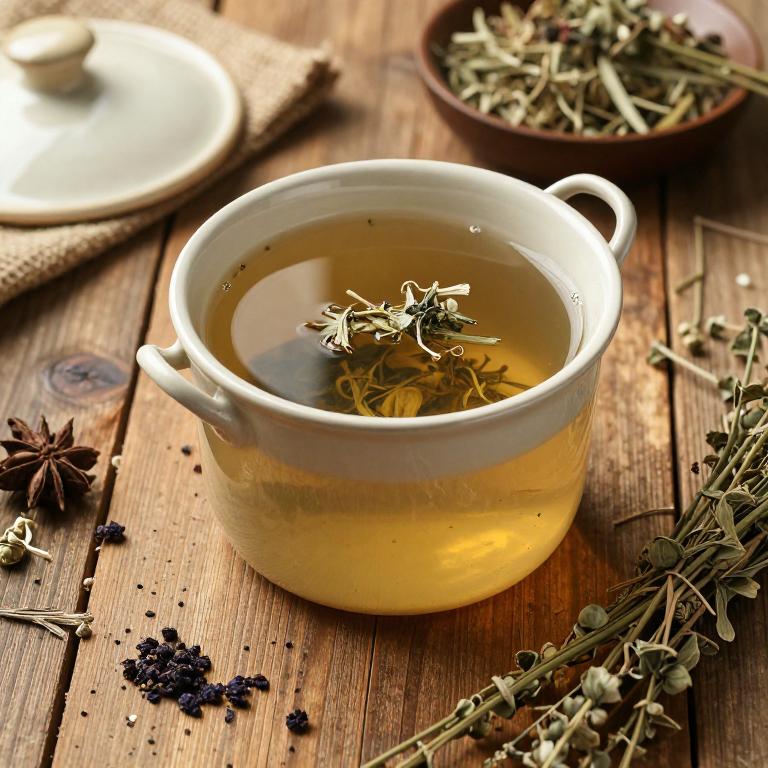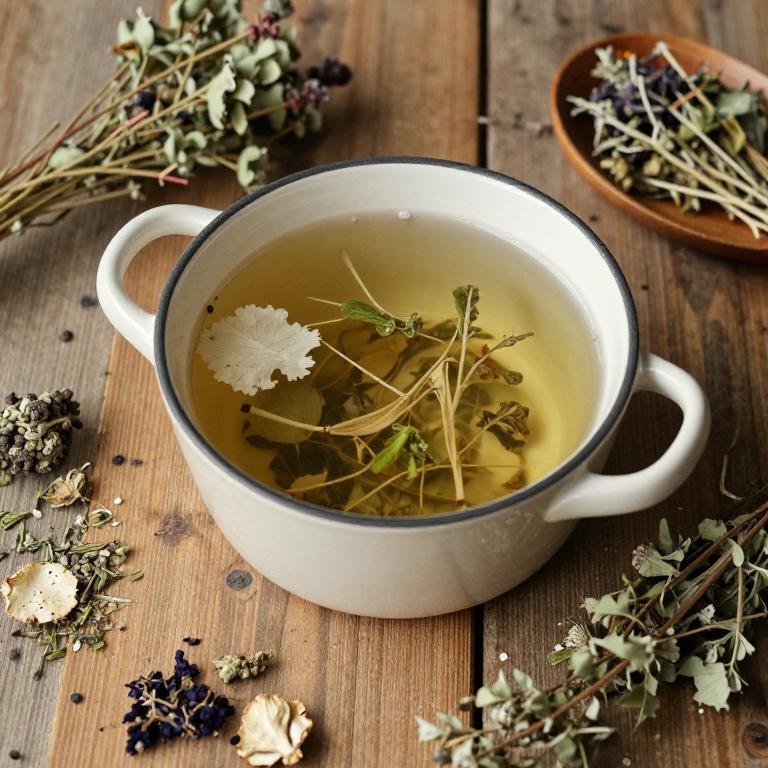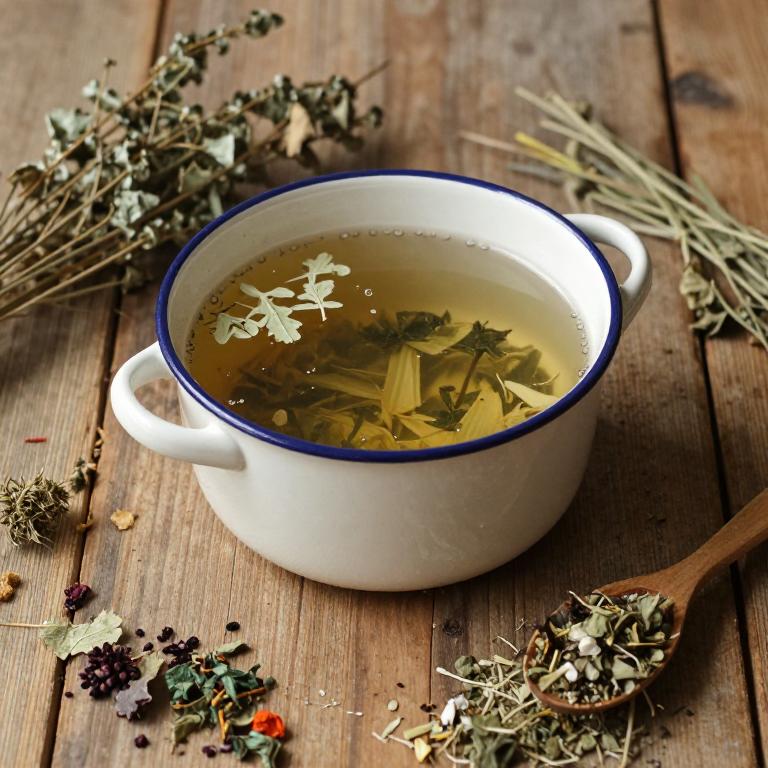10 Best Herbal Decoctions For Hair Fall

Herbal decoctions have long been used in traditional medicine to address hair fall by nourishing the scalp and promoting hair growth.
These preparations typically involve boiling herbs such as nettle, aloe vera, fenugreek, and rosemary in water to extract their beneficial compounds. The nutrients and antioxidants in these decoctions help strengthen hair follicles and improve scalp health. Applying the decoction as a rinse or using it in hair masks can enhance blood circulation and reduce dandruff.
Regular use of herbal decoctions may lead to noticeable improvements in hair thickness and overall hair quality.
Table of Contents
- 1. Field horsetail (Equisetum arvense)
- 2. Aloe vera (Aloe barbadensis)
- 3. Turmeric (Curcuma longa)
- 4. Stinging nettle (Urtica dioica)
- 5. Chaste tree (Vitex agnus-castus)
- 6. Sacred lotus (Nelumbo nucifera)
- 7. Centella (Centella asiatica)
- 8. Bacopa (Bacopa monnieri)
- 9. Indian gooseberry (Emblica officinalis)
- 10. Sesbania tree (Sesbania grandiflora)
1. Field horsetail (Equisetum arvense)

Equisetum arvense, commonly known as horsetail, is a traditional herb used in herbal decoctions to address hair fall due to its high content of silica and other minerals that promote scalp health and strengthen hair follicles.
When prepared as a decoction, the plant is simmered in water to extract its beneficial compounds, which are then applied topically or ingested as a tonic. This herbal remedy is believed to enhance hair growth by improving circulation to the scalp and providing essential nutrients that support healthy hair structure. However, it is important to consult a healthcare professional before using horsetail decoctions, as it may interact with certain medications or have side effects in some individuals.
Overall, equisetum arvense herbal decoctions are a natural approach to combating hair fall, though their effectiveness may vary depending on individual health conditions and usage.
2. Aloe vera (Aloe barbadensis)

Aloe barbadensis, commonly known as aloe vera, has been widely used in traditional medicine for its numerous health benefits, including its potential to reduce hair fall.
The gel extracted from the aloe plant contains essential nutrients like vitamins, minerals, and amino acids that can nourish the scalp and promote hair growth. When prepared as a herbal decoction, aloe vera can help strengthen hair follicles and improve scalp health by reducing inflammation and dryness. This natural remedy is often combined with other herbs such as fenugreek or mustard oil to enhance its effectiveness for hair loss.
Regular use of aloe barbadensis decoctions may lead to reduced hair fall and the promotion of thicker, healthier hair growth.
3. Turmeric (Curcuma longa)

Curcuma longa, commonly known as turmeric, has been traditionally used in herbal medicine for its potential benefits in reducing hair fall.
The active compound in turmeric, curcumin, possesses anti-inflammatory and antioxidant properties that may help strengthen hair follicles and improve scalp health. Herbal decoctions made from turmeric roots are often prepared by boiling the rhizomes in water to extract the beneficial compounds. These decoctions can be applied topically to the scalp or consumed internally to support overall hair health.
While some studies suggest that turmeric may reduce hair loss, more research is needed to confirm its efficacy and determine the optimal dosage for hair regrowth.
4. Stinging nettle (Urtica dioica)

Urtica dioica, commonly known as stinging nettle, has been traditionally used in herbal medicine for its potential benefits in promoting hair health.
Herbal decoctions made from the leaves and stems of Urtica dioica are believed to help reduce hair fall by strengthening hair follicles and improving scalp circulation. The decoction is typically prepared by simmering the dried plant material in water for several hours, allowing the beneficial compounds to infuse into the liquid. These compounds, including silica, iron, and various antioxidants, may support hair growth and reduce breakage.
When used as a rinse or applied topically, Urtica dioica decoctions are thought to nourish the scalp and enhance overall hair thickness and vitality.
5. Chaste tree (Vitex agnus-castus)

Vitex agnus-castus, commonly known as chasteberry, has been traditionally used in herbal medicine for its potential benefits in regulating hormonal balance, which may contribute to hair fall.
Herbal decoctions made from Vitex agnus-castus are believed to support the endocrine system, potentially reducing hormonal fluctuations that can lead to excessive hair loss. These decoctions are typically prepared by simmering the dried fruits of the plant in water for an extended period to extract their active compounds. Some studies suggest that Vitex may enhance scalp health and promote hair regrowth by improving circulation and reducing stress-related hair shedding.
While more research is needed, many users report positive effects when incorporating Vitex-based herbal decoctions into their hair care routines.
6. Sacred lotus (Nelumbo nucifera)

Nelumbo nucifera, commonly known as the sacred lotus, has been traditionally used in Ayurveda for its numerous health benefits, including promoting healthy hair growth.
The herbal decoctions prepared from its leaves, flowers, and roots are believed to nourish the scalp and strengthen hair follicles, thereby reducing hair fall. These decoctions are often rich in antioxidants, vitamins, and minerals that support scalp health and enhance hair density. Regular use of Nelumbo nucifera decoctions can improve blood circulation to the scalp, which is essential for maintaining strong and healthy hair.
As a natural remedy, it offers a safe and effective alternative for those seeking to combat hair loss without harsh chemical treatments.
7. Centella (Centella asiatica)

Centella asiatica, also known as gotu kola, is a traditional herb widely used in Ayurvedic and Chinese medicine for its numerous health benefits, including its potential to reduce hair fall.
The herbal decoctions made from Centella asiatica are believed to strengthen hair follicles and promote scalp health by improving blood circulation and reducing inflammation. These decoctions are typically prepared by boiling the dried leaves of the plant in water, and the resulting infusion is applied directly to the scalp or consumed internally. Studies suggest that Centella asiatica contains compounds like asiatic acid and madecassol, which may stimulate hair growth and enhance the overall health of the scalp.
As a natural remedy, Centella asiatica herbal decoctions are often recommended as a complementary treatment for individuals experiencing excessive hair loss.
8. Bacopa (Bacopa monnieri)

Bacopa monnieri, also known as Brahmi, is a traditional Ayurvedic herb that has been used for centuries to support hair health and prevent hair fall.
Its herbal decoctions are prepared by boiling the dried leaves in water, creating a potent infusion that can be applied topically or consumed internally. The active compounds in bacopa, such as bacosides, are believed to enhance scalp circulation and strengthen hair follicles, promoting healthy hair growth. Regular use of bacopa monnieri decoctions may help reduce hair loss by improving the overall condition of the scalp and hair.
However, it is advisable to consult a healthcare professional before incorporating this herbal remedy into a hair care routine, especially for individuals with existing medical conditions or those taking other medications.
9. Indian gooseberry (Emblica officinalis)

Emblica officinalis, also known as Indian gooseberry, is a traditional Ayurvedic herb widely used in herbal decoctions to address hair fall.
The decoction is prepared by boiling the dried fruit in water, allowing the active compounds such as vitamin C, antioxidants, and essential nutrients to infuse into the liquid. These components help strengthen hair follicles, reduce scalp inflammation, and promote healthy hair growth. Regular use of Emblica officinalis decoctions can improve scalp health and prevent premature graying and hair loss.
It is often combined with other herbs like Amla, Bhringaraj, and Neem for enhanced efficacy in treating hair fall.
10. Sesbania tree (Sesbania grandiflora)

Sesbania grandiflora, commonly known as the giant cowpea, is traditionally used in herbal medicine for its potential benefits in reducing hair fall.
The leaves and flowers of this plant are often decocted in water to create a nourishing herbal preparation that is applied to the scalp. This decoction is believed to strengthen hair follicles and promote healthy hair growth by improving blood circulation and providing essential nutrients. It is also thought to have antimicrobial properties that may help prevent scalp infections contributing to hair loss.
As a natural remedy, Sesbania grandiflora herbal decoctions are gaining popularity among those seeking alternative treatments for hair fall.